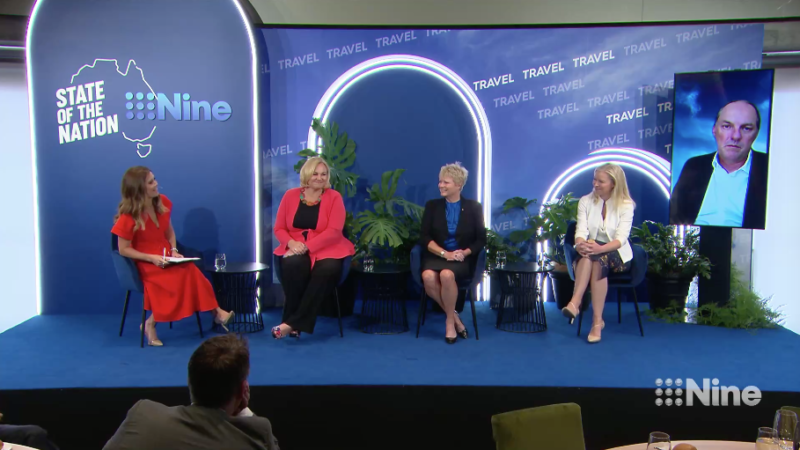Tourism leaders call for consistent border regulations as state ‘overreactions’ impact consumer confidence
Some of Australia’s tourism industry leaders have called for a consistent federal approach to domestic border closures in order to improve consumer confidence in the struggling tourism market.
Speaking at Nine’s State of the Nation travel event today, Australian Pacific Holdings’ (the parent company of APT Travel Group) group managing director Chris Hall said the “overreactions” of states suddenly closing their borders to travellers in different areas of the country was coming at the detriment of Australia’s tourism industry.

Phillipa Harrison, Sarina Bratton, Jo Boundy and Chris Hall on stage at Nine’s State of the Nation
“When you get consistency of opening, immediately you see the result of that. So what I think of what the industry’s done, some have pivoted to really bolster domestic programs, as we have, and so long as you’ve got confidence around the borders people will book,” Hall said.

